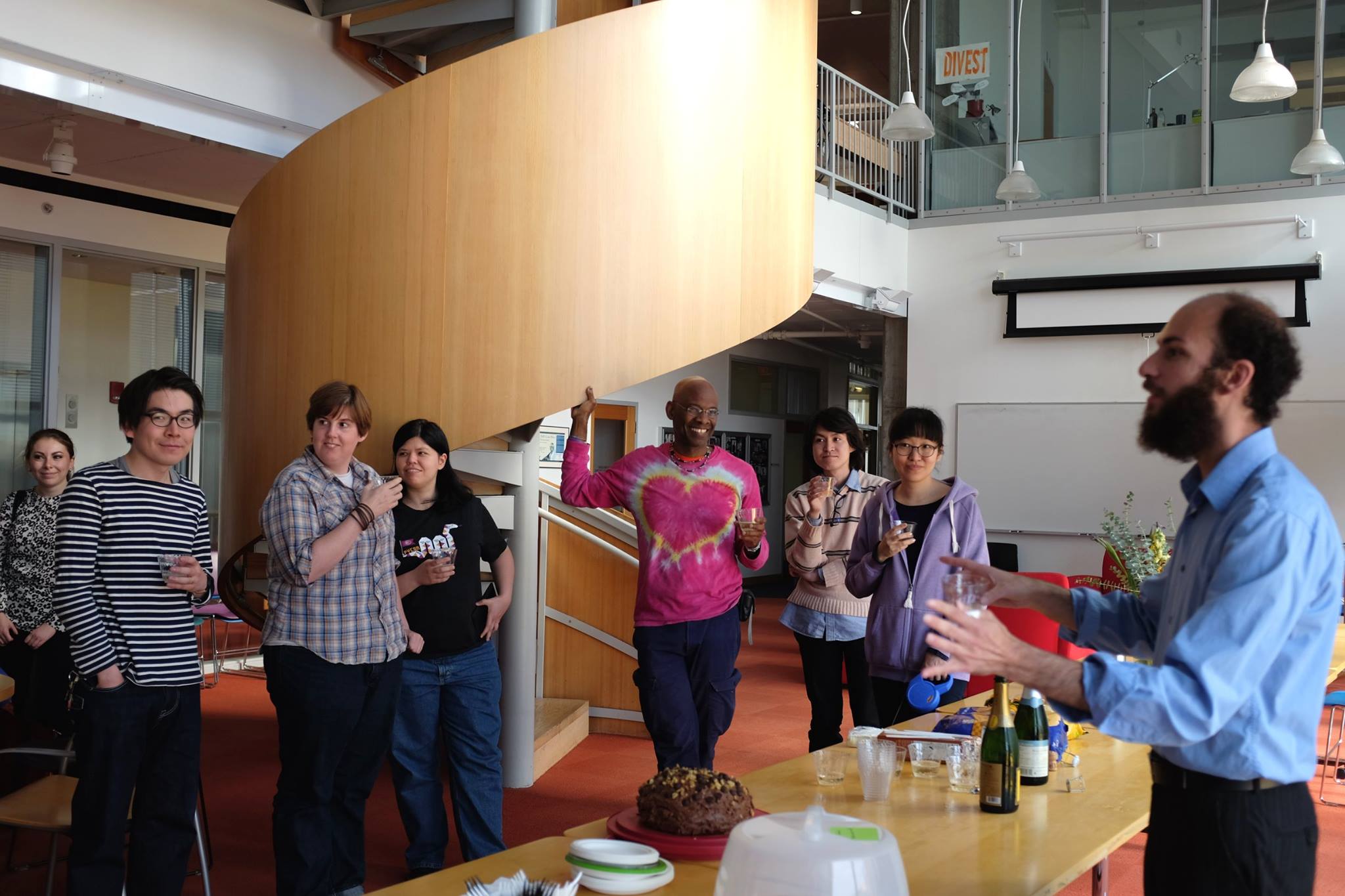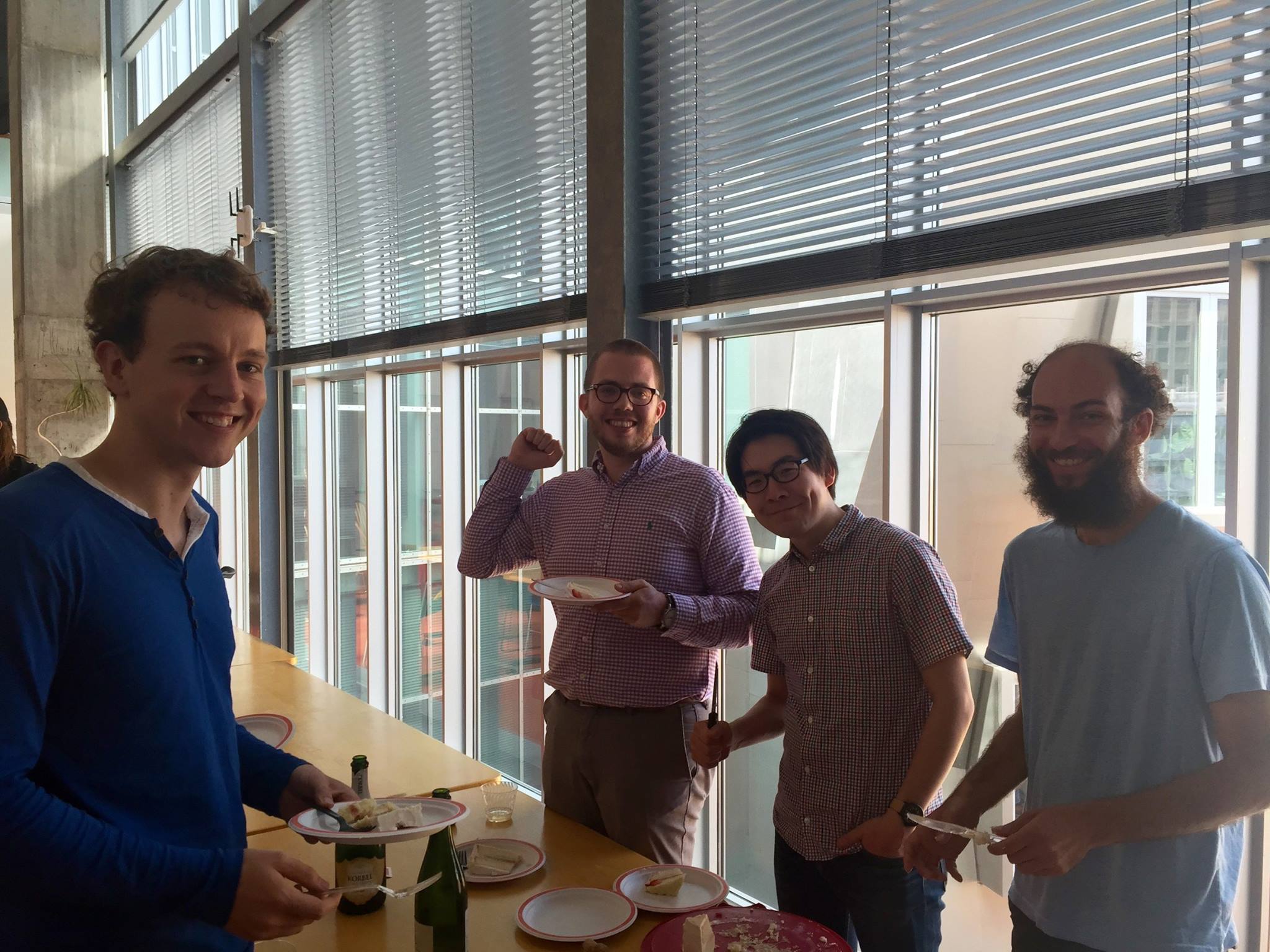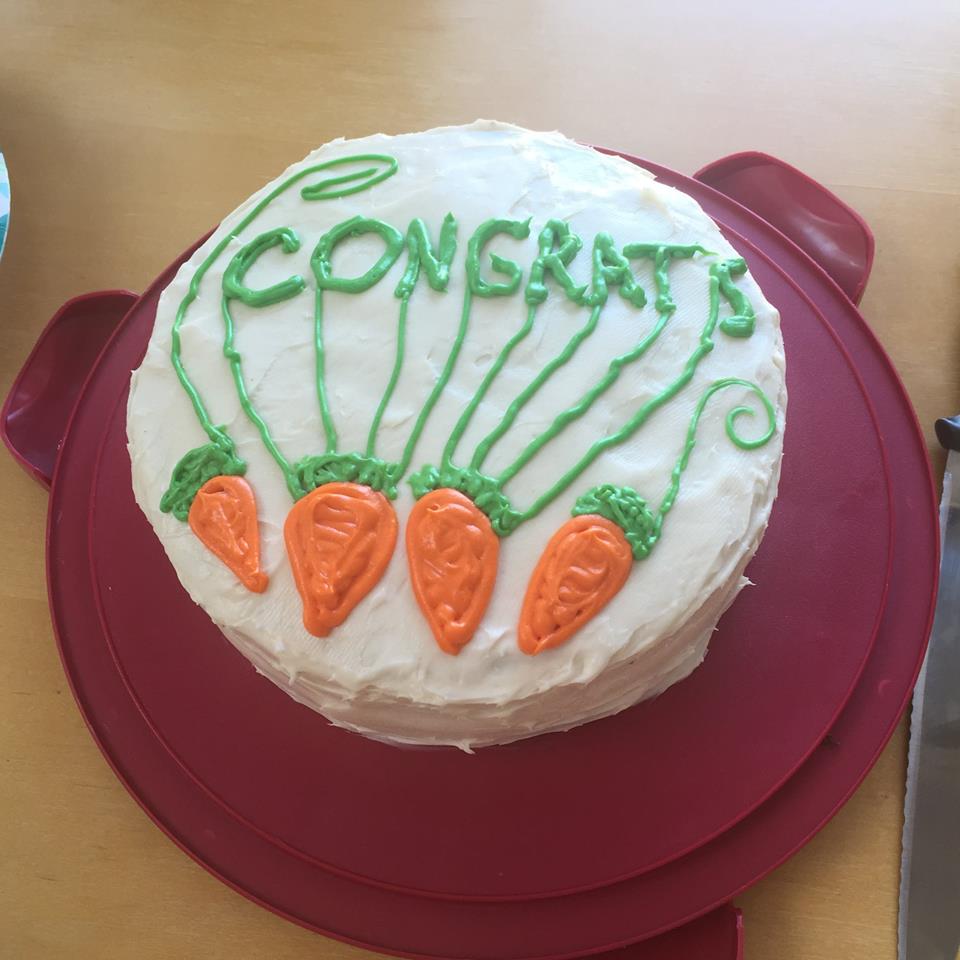The members of ling-15, the incoming graduate class, have provided brief biographical notes for us. Welcome to them!
Rafael Abramovitz: “I’m from Minneapolis, MN, and in June I finished my B.A. in Linguistics at the University of Chicago. Broadly speaking, I’m interested in phonology, syntax, and Chukotko-Kamchatkan languages. More specifically, I’m interested in dominant-recessive harmony systems, accidental (or “accidental”) homophony, case and agreement phenomena (particularly in ergative languages), and syntactic ergativity. In addition, I’m excited to learn more about computational phonology and formal semantics, two areas of linguistics which I have not yet had much exposure to.”
Itai Bassi writes: “I was born and raised in a small Kibbutz in Israel. I got my B.A. in linguistics and philosophy from the Hebrew University in Jerusalem, where I also worked on my M.A. in linguistics. My main areas of interest are semantics, pragmatics and the syntax-semantics interface. I especially find NPIs, negative concord, modality and conditionals very intriguing. I feel honored to have the opportunity to develop my thinking on these issues at MIT. In my free time I enjoy watching sports and playing chess.”
Justin Colley
Colin Davis writes: “I was born in Colorado, but ended up getting a linguistics BA at the University of Minnesota in Minneapolis, where I did a year of fieldwork research on the Turkic language North Azeri. From this I wrote a thesis attempting to account for several morphosyntactic puzzles in this language, which for brevity’s sake I won’t describe. I have a background in Japanese and am fond of the Altaic typology generally, but I’m interested in any language with fun morphosyntax. I occasionally like a little morphophonology as well, in moderation. At MIT I hope to do more fieldwork, get a grasp of semantics, and generally just make the most of everything. I’m hoping the Massachusetts winter is at least a bit more bearable than winter where I came from.”
Suzana Fong: “I’m from Brazil. I did my undergrad studies at the University of São Paulo, where I received a B.A. in linguistics. I also received an M.A. there. I worked on gerund clauses in Brazilian Portuguese both as an undergrad and as an M.A. student. Right now, my major research interest is syntax, but, at MIT, I’m mostly looking forward to broadening my horizons and to working on areas I have had little or no contact with.”
Verena Hehl: “As a Ravensburger (Ra-vens-bur-ger /ʁaːvənsbʊʁgɐ/ n 1 a native of the medieval town Ravensburg, Germany; 2 a German company that produces board games) I enjoy challenging puzzles of all sorts.
Before discovering semantics I was mainly puzzling over structural approaches to theory formation in history, English literature and mathematics. Besides a teaching degree in these subjects, I hold an M.A. in English linguistics from the University of Tübingen. In Tübingen I was working as a lecturer and as a research assistant in a crosslinguistic research group that is studying the semantics of comparison constructions, focus and questions. While at MIT I hope to be puzzled by and puzzle out some of the many issues in formal semantics and at the syntax-semantics interface. When I am not doing semantics, I enjoy playing the viola, I love reading and I am interested in traveling, attending theater productions, and visiting history museums.”
Maša Močnik: “I come from a small village in Slovenia. I did my undergrad in Ljubljana, studying English and French, and spent a year in Paris (Erasmus exchange). The last three years I was in Amsterdam — I did a master’s in logic and then taught a bit at the university. My primary interest is formal semantics, especially questions related to tense, aspect, and modality. When I have time, I like to read a good novel or poem, watch an older film (Wittertainment fan!), have a healthy meal, and run/cycle in nature.”
Mitya Privoznov writes: “I’m from Russia. I was born and grew up in Moscow. I received my specialist degree in linguistics (it was a Russian equivalent to BA and sometimes to MA) at Moscow State University. I’ve done some field work on Turkish (Tatar, Balkar), Mongolic (Buryat) and Uralic (Khanty and Moksha) languages, though my specialist thesis was about Russian and German passive. Mostly I’m interested in argument structure, syntax-morphology interface and semantics, especially intensional semantics. In my free time I read, play the piano, cook and watch films and a bunch of series.”


